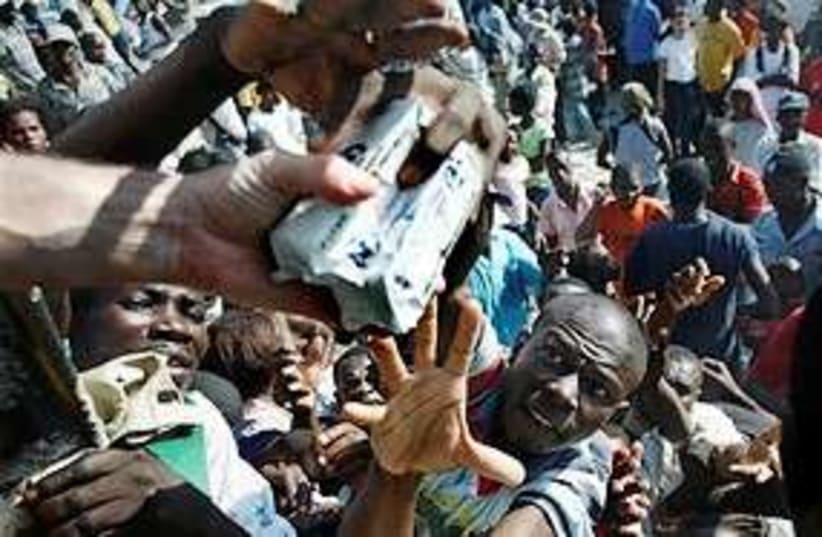On the first Sunday after the earthquake struck Haiti, peopleliving on the outskirts of Port-Au-Prince donned church clothes. TheCaribbean nation is 80 percent Roman Catholic. Several kilometersfrom the heart of the city - where the devastation is the worst -Sunday meant church day.
Not so in the capitol, where any loss of faith mirrors thephysical destruction of churches, along with schools, hospitals andhomes. In their place, desperation and lawlessness remain. A new kindof commerce has also sprung up, with people hawking $7 bottles ofjuice and $5 packs of cigarettes (expensive in this city).
Anyone with a car, of course, is quick to transport thejournalists and aid workers that have descended in Port-Au-Prince. AsI rode in one such car on Sunday, the Haitian driver and his friendssaid they drove to the Dominican Republic to buy gas and purchasefood and water for their families. Ascending the hills ofPort-Au-Prince, we passed a gas station where people clamored in linefor petrol being sold at $10 a gallon.
But medicine and water are still the country'smost pressing needs. On Sunday, armored trucks carried shipments ofwater, which is as precious as gold here. Outside a ruined healthclinic, a doctor in a blue gown made do without a traditional operatingtable, suturing a gash on his patient's leg in the middle of a streetlined with rubble from fallen homes.The same scene played out elsewhere, including atthe city's main hospitals. In Jimani, the border town between Haiti andthe Dominican Republic, the hospital was sending overflow patients to anearby hotel. The head of the Good Sammaritan relief group, who wasorganizing the ancillary center, greeted a Jerusalem Postreporter with the word "Shalom." I asked if he knew of the IDF's fieldhospital - a fully functioning, operating hospital set up in anindustrial park in Port-Au-Prince. He did not, be said, "Brothers, weneed you."
Withtwo operating rooms, a neonatal intensive care unit and X-ray machines,IDF doctors treated 100 patients in the first day. They performed threeamputations, and treated a patient with a gunshot wound. On Saturdaynight, a 24-year-old woman was the first to give birth there. In thisvery Catholic country, she named her son Israel.
